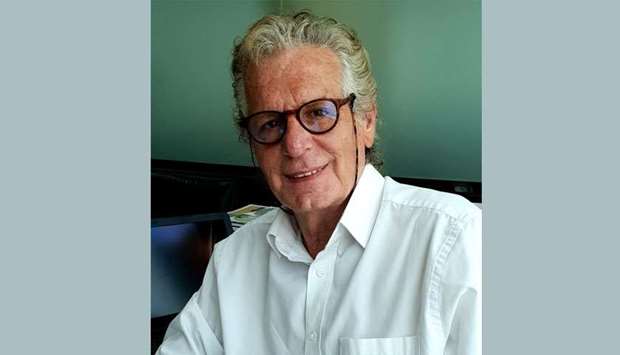An award-winning sustainable development concept could help Qatar diversify its energy mix, while addressing public and private sector initiatives like environmental protection, agro-technology, and food security.
The ‘SolarTerra Farm’ project is based on TerraSave, an innovative concept developed by German civil engineer, Peter Neuschaefer. The idea combines a solar and agricultural farm together to produce both energy and food.
“The idea is to reduce CO2 emissions to help save the environment based on the following concepts: wastewater treatment, wetland and landscape creation, biomass production, solar and wind energy, energy storage, solar desalination, and A/C cooling by heat exchange,” Neuschaefer told Gulf Times in an interview.
Neuschaefer, who is operations director at Dorsch Holding Qatar and board member of the German Business Council Qatar (GBCQ), said green energy leads to “more profits and savings,” adding that the TerraSave concept offers “70% to 80% savings” in maintenance compared to other technical treatment plants.
According to Neuschaefer, plans are being studied for a 100 MW to 500MW solar farm project in Qatar. He said utilising the ‘SolarTerra Farm’ concept in the proposed project will not only be cost-efficient but an added value to Qatar’s programmes in renewable energy, agriculture, and food security.
Instead of building separate solar and agricultural farms, the ‘SolarTerra Farm’ concept is a solar farm with crops planted beneath it. Unlike the conventional mounting system, the ‘SolarTerra Farm’ has photo voltaic (PV) technologies elevated to about 3 metres and a space between the steel structure for tractors or other machines to cultivate crops.
The concept also involves technology that recycles the water used to clean and cool PV panels. Neuschaefer said cooling and cleaning the solar cells with existing treated waste water or plain water minimises maintenance costs and increase energy efficiency up to 30% higher energy yield.
“The use of a 10 square kilometre area solar farm becomes efficient by using the same land for agriculture. Since the crops are under the solar farm, they are irrigated regularly and are protected from direct sunlight, which reduces evaporation,” Neuschaefer explained.
Neuschaefer also said a study published in the Ain Shams Engineering Journal titled ‘Enhancing the Performance of Photovoltaic Panels by Water Cooling’ scientifically backs the concept of increasing energy efficiency by cooling solar panels.
According to the study, “One of the main obstacles that face the operation of photovoltaic panels (PV) is overheating due to excessive solar radiation and high ambient temperatures. Overheating reduces the efficiency of the panels dramatically...it was found that the solar panel with water cooling generates more energy than the one without cooling.”
Neuschaefer added: “Not only would this project promote clean energy but it would also enrich and support the food security strategy of Qatar. It is a pioneering concept worldwide, which Qatar can use as a marketing tool, as well.
“It may also help enhance research in academic institutions like Qatar Foundation and raise awareness on sustainable and environment-friendly project solutions in Qatar, or serve as real life projects for students in schools and universities.”
The TerraSave concept received several recognitions like the ‘2009 Qatar Today Green Award’, ‘2010 The Middle East’s Top 5 Green Buildings Revealed’, and ‘2011 Meed Award for the Sustainable Project of the Year’.


